
Spotlights never dimmed when these women took the stage. With powerful guitars, raw lyrics, and a fearless attitude, they pushed the genre to new limits. Their influence reshaped the sound of rock and left a lasting mark on music history. Here’s a lineup of legends who made the world of music come alive.”
Sister Rosetta Tharpe: The Godmother Of Rock ‘N’ Roll

Imagine a gospel singer in the 1930s wielding an electric guitar with flair. That’s Sister Rosetta Tharpe for you. Her spirited performances and innovative guitar techniques laid the groundwork for rock ‘n’ roll, influencing legends like Elvis Presley and Chuck Berry. Indeed, she was ahead of her time.
Janis Joplin: The Soul Of Psychedelic Blues

A roar of emotion launched Janis Joplin into stardom at the 1967 Monterey Pop Festival. Fronting Big Brother and the Holding Company, she carved a lane for blues rock in a male-dominated scene. Tracks like “Ball and Chain” weren’t just performed—they were felt in every corner of the stage.
Tina Turner: The Blazing Queen Of Rock’ n’ Roll

Tina Turner’s journey from humble beginnings to rock royalty is inspiring. Her powerful vocals and dynamic performances, especially with hits like “Proud Mary,” showcased her resilience and unmatched talent. Even Mick Jagger couldn’t resist taking dance pointers from her.
Joan Jett: The Unshakable Queen Of Riff

After building her label from the ground up, Joan Jett stormed the charts in 1981 with “I Love Rock ’n’ Roll,” turning industry rejections into one of the most iconic moments in rock history. The song hit No. 1 and remained there for several weeks. Her raw, riff-heavy style and punk ethos broke through radio norms and reshaped how rock welcomed female artists.
Stevie Nicks: The Enchanting Rock Songstress

With her ethereal voice and mystical persona, Stevie Nicks became the heart of Fleetwood Mac. Songs like “Rhiannon” and “Edge of Seventeen” highlighted her poetic songwriting and distinctive style. Her solo success with “Bella Donna” in 1981 proved her lyrical mysticism could stand strong in any spotlight.
Patti Smith: The Voice That Roared Like Verse
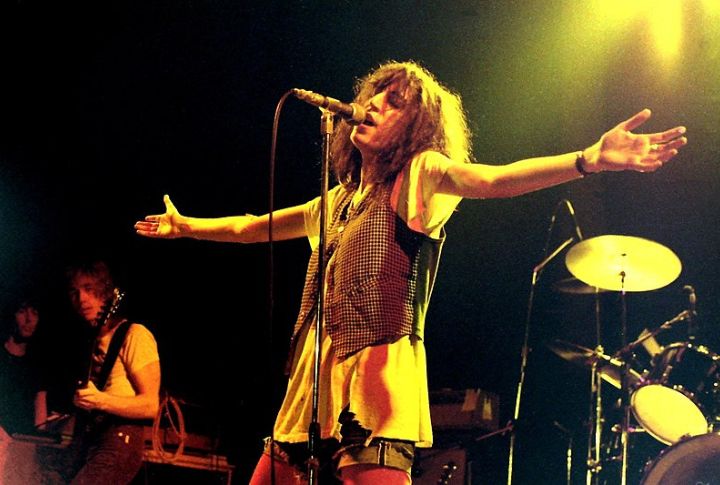
Patti Smith, a literary rebel with distortion in her veins, exploded onto the scene with “Horses” in 1975. That album redefined punk as both cerebral and raw. Merging poetry with feedback, she opened the floodgates for artists to channel rage, intellect, and art into rock without compromise.
Debbie Harry: The Blonde Behind A New Wave
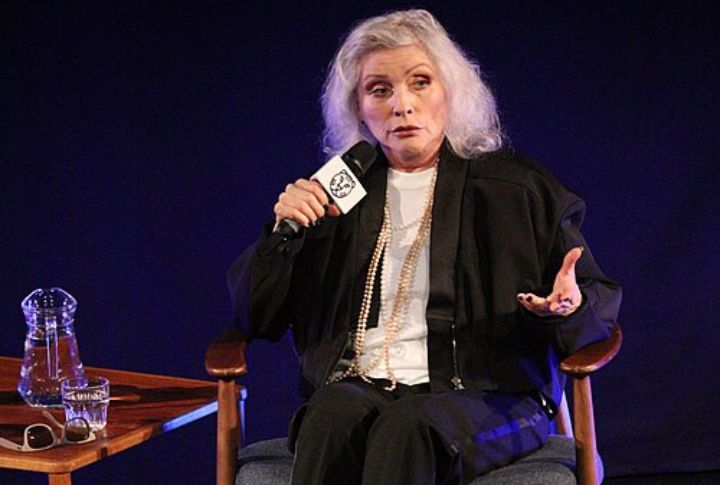
Visual charisma and genre-mashing confidence made Debbie Harry the face of Blondie and the sound of a new era. With “Call Me” topping charts in 1980 and “Rapture” pioneering rap-rock, she showed that glamour and grit could coexist, and it created a blueprint for future pop-punk innovators.
Chrissie Hynde: The Rock Minimalist With Bite
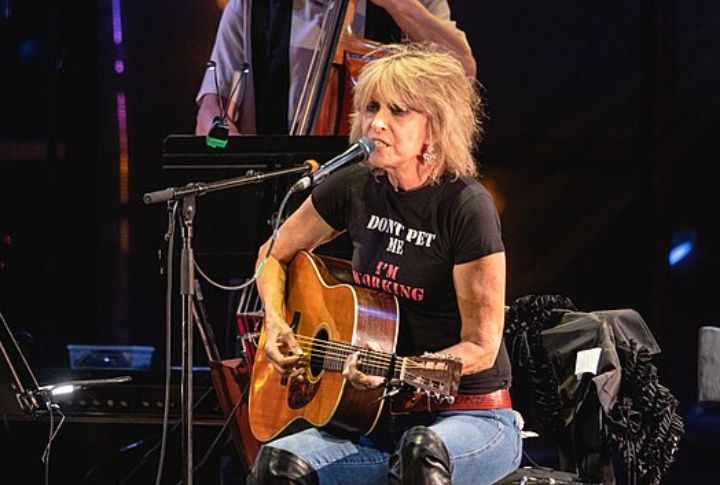
Precision over polish defined Chrissie Hynde’s approach. Her restrained vocals and crisp guitar on The Pretenders’ eponymous 1980 debut album gave punk a melodic spine. Songs like “Kid” and “Brass in Pocket” fused punk’s sharp edges with emotional clarity, carving out a space for Chrissie Hynde as an enduring and unconventional force in modern guitar rock.
Grace Slick: The Acid-Soaked Powerhouse
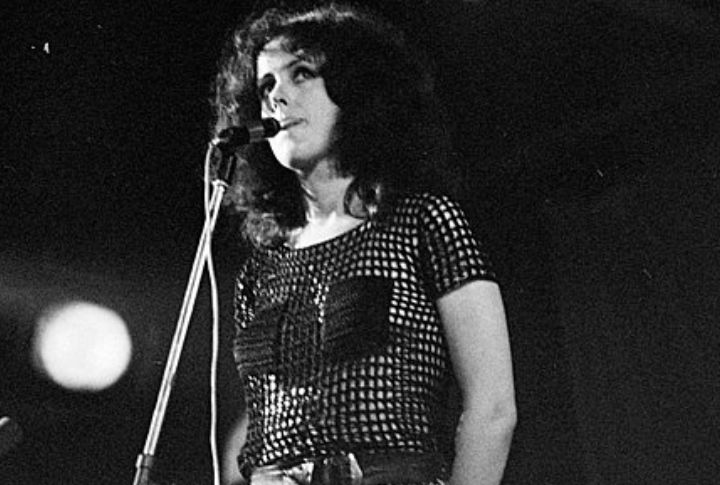
Grace Slick’s commanding vocal delivery made the 1967 hit “White Rabbit” a psychedelic anthem. As Jefferson Airplane’s lead singer, she brought theatricality and political defiance to rock’s front line. Her classically influenced style and fearless lyrics helped define the counterculture’s trippiest soundtrack.
Ann Wilson: The Voice That Launched A Thousand Riffs
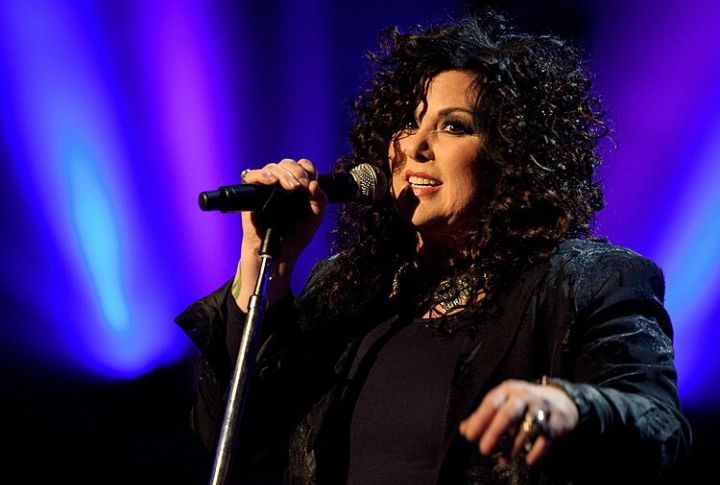
Heart’s 1977 release “Barracuda” displayed Ann Wilson’s ability to soar over aggressive guitar lines with operatic precision. Her performances delivered both technical range and sheer rock power. She brought bold, uncompromising femininity to the hard rock frontwoman archetype in an era filled with male voices.
Nancy Wilson: The Strings That Shaped Heart

As Heart’s lead guitarist, Nancy Wilson combined intricate acoustic melodies with electrifying riffs. Her composition skills were evident in tracks like “Crazy on You,” which opens with a finger-picked acoustic intro that complements her sister Ann’s vocals. It created a dynamic duo that dominated the rock scene.
Pat Benatar: The Polished Punch Of The 1980s

Armed with classically trained vocals and fierce onstage charisma, Pat Benatar scored four Grammy wins and massive hits like “Love Is a Battlefield.” Her 1980 breakthrough album became a multi-platinum success. She also brought technical mastery and emotional urgency to the polished production of early MTV-era rock.
Kim Gordon: The Edge Of Sonic Innovation

The noise became structured in Kim Gordon’s hands. Sonic Youth’s 1988 “Daydream Nation” album showcased her eerie vocals and jagged basslines. Her experimental style, combined with an emotional depth, brought an art-school punk sensibility that helped redefine alternative rock. She created room for mood, texture, and complex layers of chaos within the indie music scene.
Suzi Quatro: The First Lady Of Glam Rock

In 1973, Suzi Quatro topped the UK charts with “Can the Can,” smashing norms as a leather-wearing bassist leading her band. Her gritty delivery and glam stage style influenced everyone from Joan Jett to Tina Weymouth. Quatro proved rock power wasn’t about volume—it was about presence.
Courtney Love: The Wrecking Ball Of Grunge

Courtney Love’s fierce aura turned Hole into a defining act of the 1990s. With the release of “Live Through This” in 1994, she channeled grief and fury into songs like “Violet” and “Miss World.” Her jagged delivery and commanding image gave grunge a new face—unfiltered, glamorously unhinged, and unforgettable.
Alanis Morissette: The Cathartic Confessor Of Rock
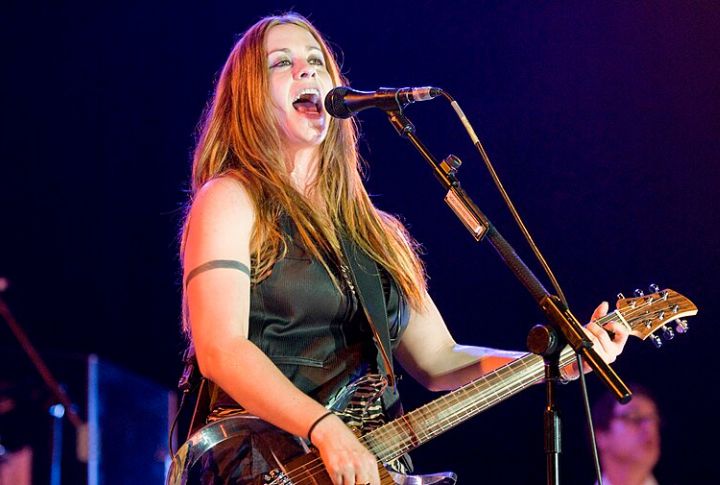
In 1995, “Jagged Little Pill” redefined personal storytelling in rock. Alanis Morissette’s raw lyrics and alt-rock arrangements struck a nerve worldwide. “You Oughta Know” wasn’t just a breakup song but a generation’s emotional outcry. With multiple Grammy wins, she proved vulnerability could sell just as well as swagger.
Shirley Manson: The Razor-Wired Elegance Of Garbage
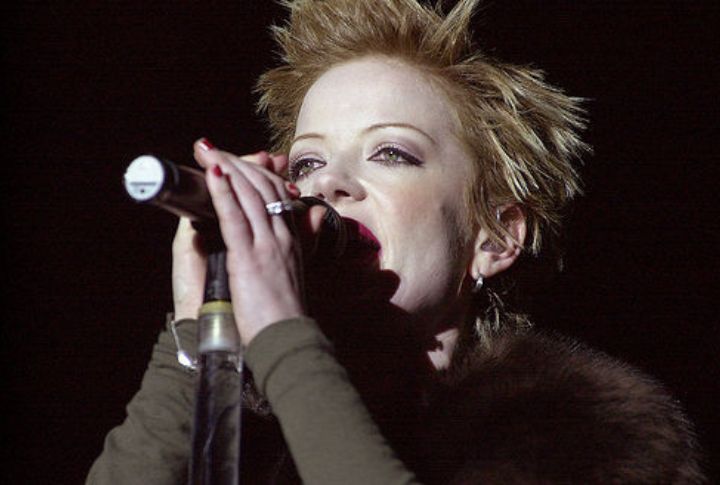
Sarcasm met elegance when Shirley Manson took the lead on Garbage’s self-titled 1995 debut, turning it into an alt-rock juggernaut. Her deadpan delivery on “Stupid Girl” matched the band’s industrial alt-rock aesthetic. With bold style and vocal restraint, she led a sound that balanced attitude with restraint, wrapped in glossy, menacing precision.
Melissa Etheridge: The Fire-Breather With A Six-String
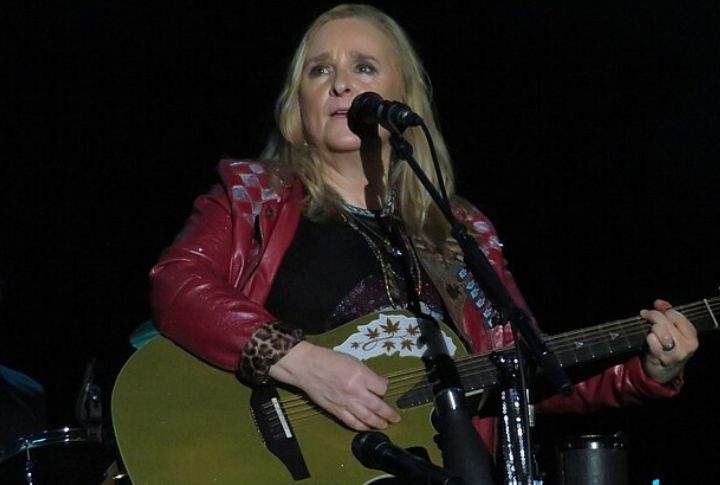
A raspy growl and bluesy guitar made Melissa Etheridge a defining voice of 1990s heartland rock. Her 1993 Grammy win for “Ain’t It Heavy,” a single from her 1992 album “Never Enough,” marked a breakthrough. Honesty charged her music with strength, and activism added real-world weight to every lyric.
Hayley Williams: The Pop-Punk Torchbearer

Youthful urgency met powerhouse vocals in Hayley Williams’ rise with Paramore. Her 2007 hit “Misery Business” led a wave of radio-friendly punk, and her theatrical flair and vocal clarity gave the genre a fresh identity. As both frontwoman and lyricist, she pushed pop-punk past eyeliner and teenage angst into a lasting legacy.
Aretha Franklin: The Soul Power Who Rocked With Grace
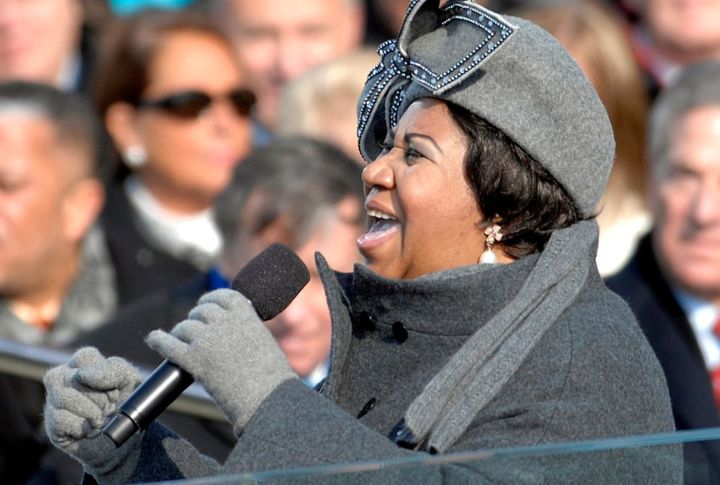
Before soul met church and turned stadiums into sanctuaries, Aretha Franklin had already shaped music history. Her version of “Respect” became an anthem of self-worth, but tracks like “Rock Steady” and “Dr. Feelgood” carried her into funk-rock territory. That voice didn’t just soar—it shook the walls of every genre.

Comments
Loading…